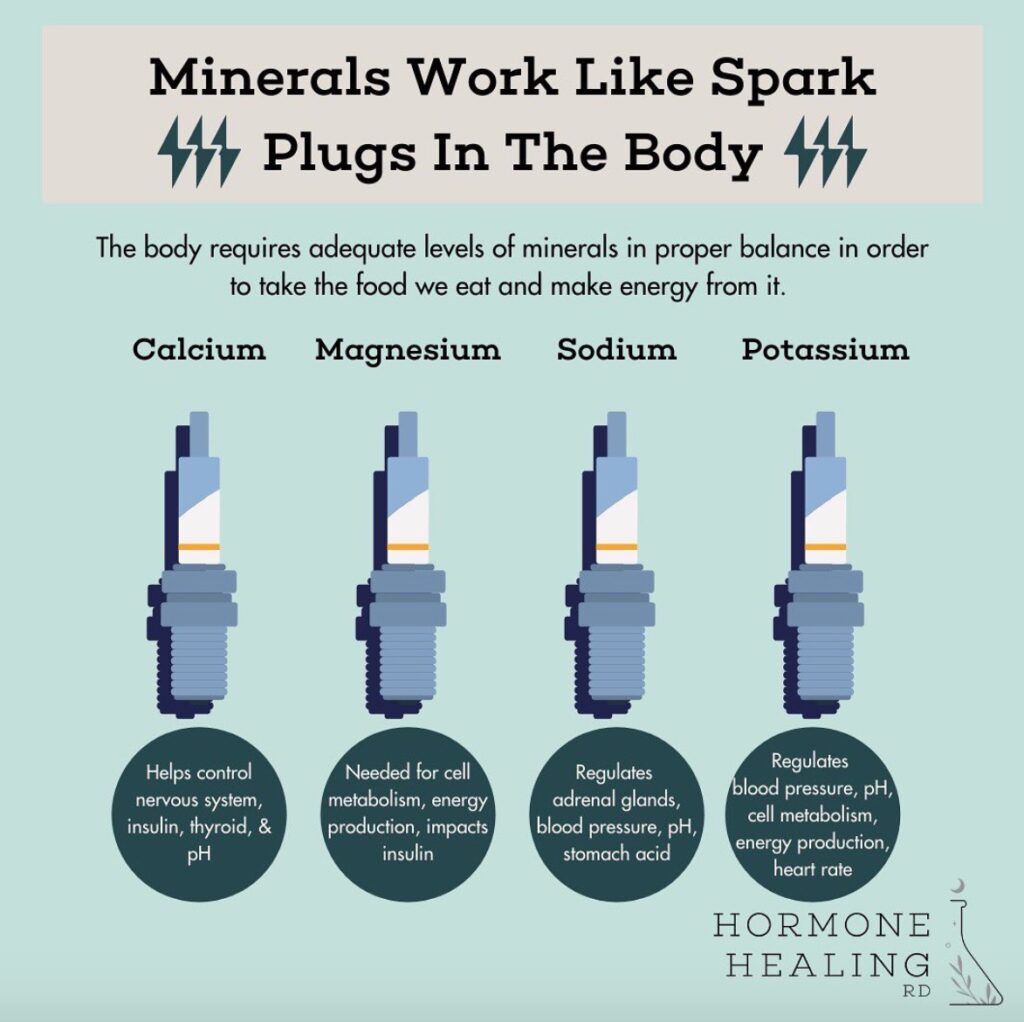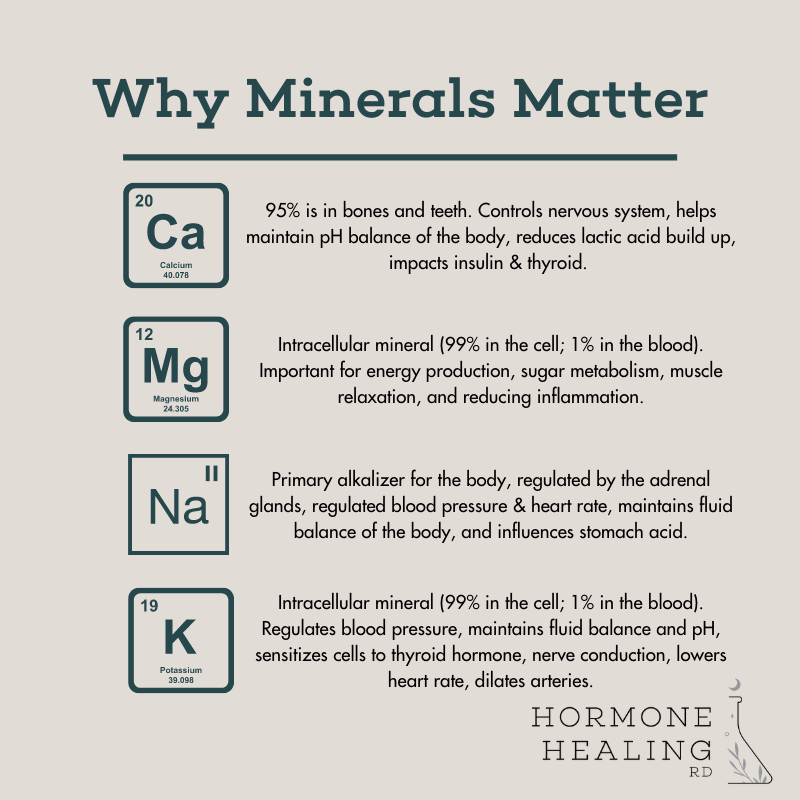There are seven essential nutrients needed by the human body, meaning we need them in our diet. Minerals, along with vitamins, make up the essential nutrient group known as micronutrients. These nutrients are named “micro” because the body does not require as much of them when compared to macronutrients–carbs, protein, and fat. What makes minerals so special? The answer is that they play a role in several functional processes, including bone metabolism, hormone metabolism, reproduction, vitamin metabolism, and immune system. Now it is time to dive into the nuts and bolts of minerals.
What are the mechanics of minerals?
Minerals are to your body what spark plugs are to your car. Minerals are what make your cells run and are the foundation in which the body works. If you do not have the right mineral balance, it is nearly impossible to heal your hormones, support thyroid function, and get your gut to work correctly.
There are two levels of minerals, major and trace. The ones on the first level (major) are the most important. Those include calcium, magnesium, sodium, potassium, and more. Minerals work together, so if we can balance these four, the rest will fall into place. Here is why they are essential for your health:

Why do minerals matter for your hormones?
Hormone health is dependent upon minerals for a couple of reasons. The first reason being that our organ systems depend on these minerals for proper functionality. The second reason is that minerals, along with vitamins and cholesterol, are the building blocks of our hormones. As I discussed in my blog series on the thyroid, hormone health relies on balanced minerals. A few of the roles minerals play in hormone health include:

How to tell if your mineral balance is off?
Having lab work done is a way to identify any mineral imbalance. I’ve grown to really love mineral testing in my practice. I personally benefited a lot when it helped me identify copper imbalances. Present-day, I use mineral testing to identify deficiencies that could potentially be impacting hormone levels. Excess levels of certain minerals that can increase hormones like estrogen and impair thyroid function, and see trends happening in the body before they show up on other lab work. I use a hair mineral analysis, which gives insight into nutrient deficiencies, thyroid health, metabolic function, nervous system balance, and so much more. It’s my favorite functional lab test for sure! If you feel that your mineral levels may be imbalanced, visit my website for more information on what it includes and how to order your hair mineral test. Check back for part-2 of the mineral series, where I will be discussing how some minerals interact with each other. Want to have your minerals tested? Get my Master Your Minerals online course, in which we teach you how to interpret your own HTMA and build a hormone-healing protocol based on your unique results.
